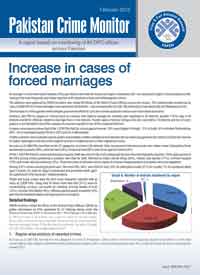ISLAMABAD, March 9, 2012 – Seventy six Tehsil Headquarter Hospitals (THQs) were found having less than 50 percent occupancy rate of sanctioned positions for medical staff including anesthetists, gynecologists, ENT specialists and physicians, says a Free and Fair Election Network (FAFEN) report.
According to the report based on monitoring of 76 THQs in 55 districts across the country in January this year, the situation was quite alarming in Khyber Pakhtunkhwa and Balochistan where positions for specialized staff
were not even sanctioned. On the other hand, in hospitals where the positions for medical staff were sanctioned, they were not occupied.
Of the 76 THQs covered in the report, 35 were in 22 districts in Punjab, 14 in 13 Khyber Pakhtunkhwa districts, five in as many districts in Balochistan and 22 in 15 districts in Sindh.
The monitored hospitals also lacked specialized units with at least 67% of these without cardiology, chest, dermatology, ENT, orthopedic and pathology departments.
Similarly, there were no ophthalmology departments in three-fifths of the hospitals while specialized services for gynecology and obstetrics were non-existent in 34 monitored facilities.
However, of all the monitored hospitals, 48 had surgical departments with 58 having dental departments.
The availability of general and physical facilities was far better than the specialized services. Eighty five percent of the THQs were properly connected by roads, had in-house pharmacies, and telephone and electricity connections.
At least 80% of the hospitals had running ambulances, generators for power backup, x-ray, dental and labour rooms, operation theaters, medico-legal services and wards for in-patients.
FAFEN observers interviewed three out-patients at each of the monitored hospitals to ascertain the quality of treatment they received. Of the 228 who were interviewed, six complained the doctors were not present on duty;
41 were not satisfied with the amount of time given by the doctors to attend to them while 27 categorized the doctors’ behaviour as rude.
Though the in-house pharmacies are supposed to provide patients free medicines, 64 patients complained they had to buy them from these facilities. Similarly, 15 said they were charged for services at the hospital.
Elected/government officials made 67 visits to the monitored THQs during the October-December 2011 quarter. Most of these were monitoring and routine visits while some were for the purpose of checking attendance, performance of doctors and staff and for discussing issues faced by staff and patients.
About FAFEN: FAFEN is a network of 42 civil society organizations working to foster democratic accountabilities in Pakistan. It is governed by the Trust for Democratic Education and Accountability.



